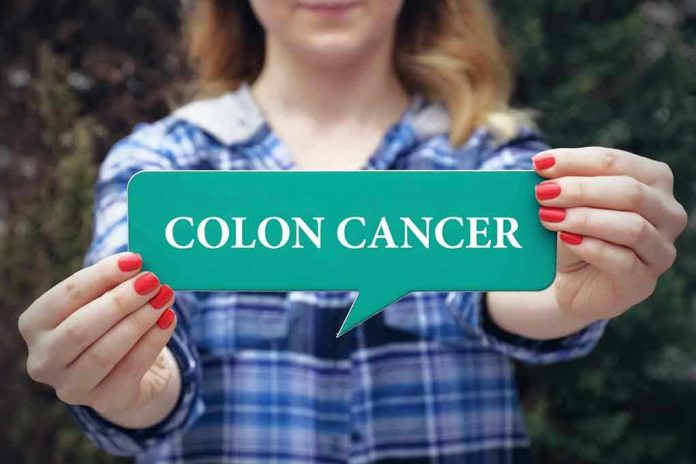
The alarming rise in colorectal cancer rates among younger Americans spotlights a pressing health crisis with potentially deadly consequences.
Story Snapshot
- 20% of new CRC cases are now diagnosed in adults under 55.
- The disease often lacks clear early symptoms, complicating early detection.
- Screening guidelines have been lowered to age 45.
- Projected 154,000 new cases and 52,900 deaths in 2025.
Rising Incidence in Younger Adults
Colorectal cancer, once considered a disease of older adults, has seen a troubling rise in incidence among younger Americans. In recent years, 20% of new diagnoses occur in individuals under the age of 55. This demographic shift has prompted medical experts to reevaluate screening guidelines and emphasize the need for heightened awareness. Despite increased advocacy, the absence of classic symptoms in early stages remains a significant hurdle, often delaying diagnosis until the disease has advanced.
The shift in age demographics for colorectal cancer presents a unique challenge to the healthcare system. Historically, screening and prevention efforts have targeted older populations. However, with younger adults increasingly affected, healthcare providers must adapt their strategies. Lifestyle factors, including diet and sedentary behavior, are suspected contributors, though many young patients do not exhibit traditional risk factors. This underscores the necessity for proactive screening and research into potential environmental causes.
Impact on Healthcare and Society
The increasing prevalence of colorectal cancer in younger populations brings both immediate and long-term implications. In the short term, the surge in cases places additional strain on healthcare systems, requiring more resources for diagnosis and treatment. As many of these patients are diagnosed at advanced stages, the psychosocial impact on individuals and families is profound. Long-term, the economic burden could be significant, with increased healthcare costs and productivity losses.
Insurance companies and employers will likely face rising costs as they adjust to cover earlier and potentially more frequent screenings. Legislative actions may be necessary to secure funding for research and public health initiatives aimed at addressing this shift. The pharmaceutical and biotech sectors are also expected to play a crucial role, investing in the development of new diagnostics and treatments to combat this growing health challenge.
Calls for Awareness and Research
In response to the growing threat, organizations like the American Cancer Society and the Colorectal Cancer Alliance are intensifying awareness campaigns. These efforts aim to educate the public about the importance of early detection and the potential warning signs of colorectal cancer. Medical experts continue to call for comprehensive research into the causes of this trend, as many young patients lack identifiable risk factors. This research is crucial in developing effective prevention strategies and improving long-term outcomes for younger patients.
Colorectal cancer may cause these 4 hidden warning signs, experts say https://t.co/OepztBW4lB #FoxNews
— SweetgumRoe (@RoeSweetgum) August 12, 2025
While the precise reasons for the rise in colorectal cancer among younger adults remain uncertain, the need for vigilance and proactive healthcare measures is clear. By increasing public awareness and advancing medical research, there is hope for reversing this concerning trend and safeguarding future generations from the devastating effects of this disease.
Sources:
Colorectal Cancer Alliance, 2025
Cancer Research Institute, 2025




